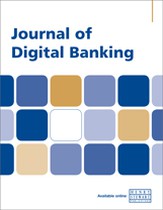The marriage of application programming interface conformance and trust frameworks: Balancing innovation and security in open banking
Abstract
In the rapidly evolving world of open ecosystems, the advent of application programming interfaces (APIs) has transformed how banks and third-party providers interact. This paper explores how innovation and security must be successfully balanced so that end users can seamlessly access new and exciting open banking products and services within a safe and trusted environment. The benefits and impact of APIs are discussed, alongside the role of API standardisation and conformance in mitigating risk. The importance of integrating a bank’s open API strategy within its broader API strategy is emphasised, to maximise value and align with overarching organisational goals. A centralised approach to conformance and the need for robust and efficient trust frameworks are the bedrock of successful open banking ecosystems. Trust, built upon reliability, security and transparency, verifies that rules have been agreed upon and enables their enforcement. Central directories ensure compliance with regulation, streamlining complexities associated with open banking and facilitating secure communication and data exchange between the various participants. The interplay between centralised API conformance and a robust trust framework is explored, highlighting their role in enhancing the integrity of open banking and open data initiatives, with regulators and market infrastructures playing a vital role. They are responsible for mandating open banking and ensuring that safety and security are maintained in this new and interconnected financial landscape. The effective integration of open APIs, the establishment of trust and the commitment to compliance and standardisation all pave the way for a more inclusive and innovative banking experience for all stakeholders.
The full article is available to subscribers to the journal.
Author's Biography
Mike Woods is CEO and co-founder of Konsentus, a global provider of open banking and open finance infrastructure technology and specialist advisory services. Konsentus’ trust framework technology empowers banks and service providers to securely engage in open ecosystems by delivering robust data validation and directory services. Konsentus’ expert advisory services guide countries seamlessly from the conceptualisation and vision of open finance to full-scale, market-wide implementation. Mike’s leadership career has spanned retail, banking and technology companies. Previously an executive director at NatWest Bank and then at the Royal Bank of Scotland, Mike headed a group comprising over 1,000 colleagues and was responsible for e-commerce and payments across corporate and retail banking and investment management. He has held multiple roles specialising in FinTech mergers and acquisitions and led the Konsentus acquisition of Open Banking Europe from PRETA. Mike has also enjoyed several nonexecutive advisory positions.
Todd Schweitzer is co-founder and CEO at Brankas, a leading global open finance technology provider. Brankas partners with financial institutions to launch and monetise application programming interface (API) products for real-time payments, identity verification, new account opening, remittances and more. With Brankas, online businesses, FinTech companies and digital banks can use Brankas APIs to create new digital experiences for their users. Todd has held senior positions in private equity and management consulting, spanning technology, the public sector and financial services. He is also the founding Director of Open Banking Exchange Asia, convening policymakers and industry leaders across the region to develop common standards and best practices. Todd holds dual bachelor’s degrees with honours in economics and international studies from the University of California, Irvine, and a master’s degree in Public Policy from Harvard University’s Kennedy School of Government with a focus on economic development policy.
